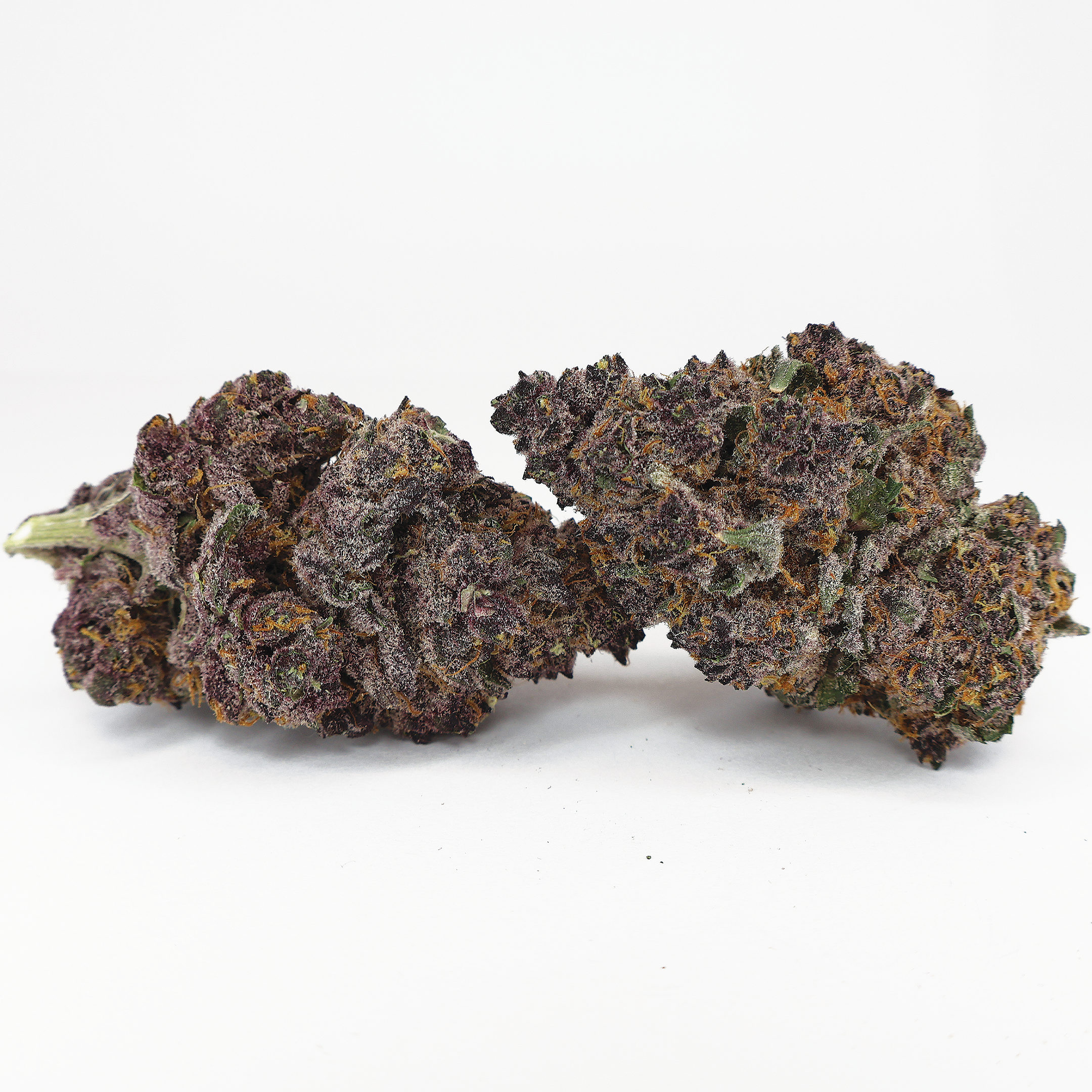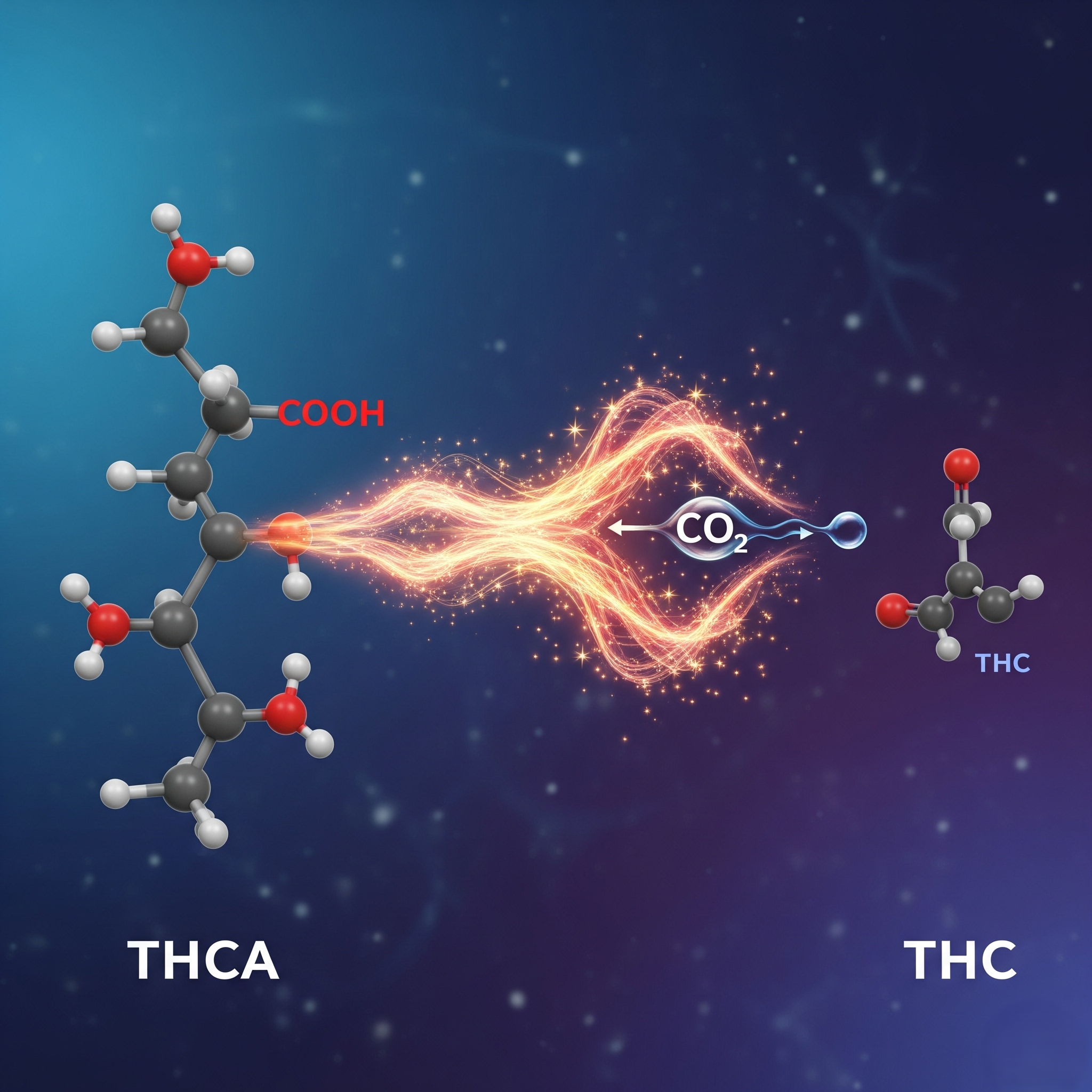Tetrahydrocannabinolic acid (THCA) is one of the most intriguing compounds in the cannabis plant. While it often takes a backseat to its well-known counterpart, THC, THCA plays a unique role in how cannabis interacts with our bodies and is quickly gaining attention in the cannabis industry. Understanding how THCA works, how it differs from THC, and the ways it can be consumed helps consumers make smarter choices about cannabis products.
What Is THCA?
THCA, short for tetrahydrocannabinolic acid, is a non-psychoactive cannabinoid naturally present in raw and freshly harvested cannabis plants. Unlike THC, THCA does not produce a “high.” Instead, it exists as the precursor to THC, meaning that when cannabis is dried, cured, or heated, THCA undergoes a process called decarboxylation and converts into THC.
Fresh cannabis flowers, fan leaves, and live resin extracts are often rich in THCA, making it an essential compound for both recreational and wellness-driven cannabis consumers.

The Key Difference: THCA vs. THC
The biggest difference between THCA and THC is psychoactivity.
-
THCA: Non-psychoactive in its raw form. Consuming raw cannabis or extracts rich in THCA does not create a euphoric “high.”
-
THC: Psychoactive. Once THCA is heated through smoking, vaping, or cooking, it transforms into THC and delivers the mind-altering effects cannabis is best known for.
How THCA Converts Into THC
This transformation process is called decarboxylation. When cannabis is exposed to heat, whether through smoking, vaporizing, or baking, THCA loses a carboxyl group, turning into THC.
This is why raw cannabis does not make users feel high, but smoking or cooking it does. Decarboxylation is the bridge between THCA and the psychoactive experience consumers often seek.
Common Ways to Consume THCA
Depending on whether a consumer wants to maintain THCA in its raw form or convert it into THC, there are several ways to use it:
1. THCA Flower
Raw cannabis flower can be juiced, blended into smoothies, or added to raw recipes. This keeps THCA intact without converting it to THC.
2. THCA Diamonds
These highly purified, crystalline concentrates are one of the purest forms of THCA. They are often dabbed or vaporized, which instantly converts them into THC.
3. THCA Rosin
A solventless extract made using heat and pressure. Depending on how it’s consumed, it can retain THCA or convert to THC.
4. THCA Dabs & Concentrates
These include crystals, sauces, or waxes that are vaporized at high temperatures. When heated, THCA transforms into THC, offering a potent experience.
Is THCA Legal?
The legal status of THCA can be complex. In regions where cannabis is legal, THCA products are usually permitted as well. However, since THCA is the direct precursor to THC, some areas regulate it under the same rules as THC.
It’s always best to check local cannabis regulations before purchasing or consuming THCA products.
Final Thoughts
THCA is a unique cannabinoid with growing recognition in the cannabis world. While THC remains the star for psychoactive effects, THCA offers consumers new ways to explore cannabis, whether through raw consumption, concentrates, or extracts. By understanding the differences between THCA and THC, cannabis enthusiasts can make more informed decisions about their experience.




Share:
How to Order at a Dispensary: A Complete Guide for First-Time and Regular Shoppers
What Makes for the Best Traditional Dab Rig?